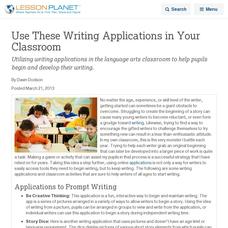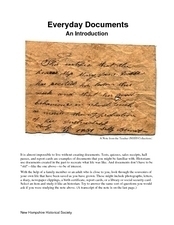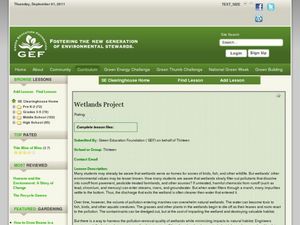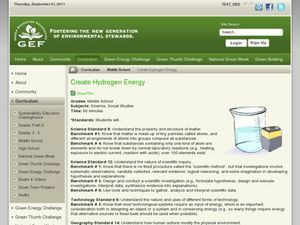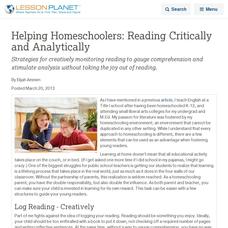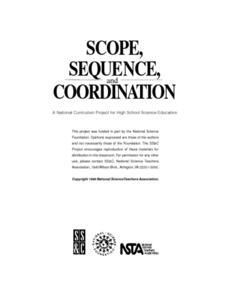Curated OER
Siddhartha: Anticipation Guide
What is wisdom? This is just one of 10 thought-provoking questions on this anticipation guide, created for Siddhartha. This would be a great activity for learners to do before jumping into discussion groups, ensuring that everyone has...
Curated OER
Best Websites for English Teachers
Bookmark these grammar, writing, and literature websites to build your teaching arsenal, making life just a little bit easier.
Curated OER
Bloom's Taxonomy for Ethan Frome: Chapter Four
As your class progresses through Chapter four of Ethan Frome, provide them with these thought-provoking questions built using Bloom's Taxonomy.
Curated OER
Jeopardy
An unusually challenging Jeopardy-style game is here for your charges. All sorts of high-level algebraic terminology, concepts, and problem solving are embedded in the game. There is even a Final Jeopardy clue. I have found these...
Curated OER
How Big Is That Star?
Aspiring astronomers study stars. They compare stars and explain the relationship between radius, mass, and diameter. By creating a star simulation, they discover how a binary star system's orbit can cause changes in the observed...
Curated OER
Supernova Chemistry
Using spectroscopes, high school astronomy, physics, or chemistry learners observe emission spectra from several different sources. This stellar NASA-produced lesson plan provides terrific teacher's notes and a student handout. Make sure...
Curated OER
X-ray Spectroscopy and the Chemistry of Supernova Remnants
This link takes you to a comprehensive unit that delves into emission spectra and supernovas. There are four parts: How and where elements are created, electromagnetic radiation, spectroscopy, and the newest technology for studying our...
Curated OER
Graphic Novel Format and Terms Worksheet
Crank up the creativity in your classroom and encourage your writers to create graphic novels. This graphic organizer provides kids the opportunity to review basic parts of a graphic novel before creating their own. They define terms...
Curated OER
Living Systems Part III
Here is a fantastic, informative, interactive presentation on plant and animal cells. The PowerPoint is produced by an elementary school teacher who has a doctorate in science, and it shows! This would be a splendid presentation to use...
Curated OER
Review of Ionic and Covalent Compounds and Transitioning from Ionic to Covalent Compounds
Here is a unique assigment: compare and contrast ionic and covalent compounds in an extensive data table and then analyze Lewis dot structures in antoher. Three columns are to befilled in: "characteristic or feature," "applies to ionic...
Curated OER
Use These Writing Applications in Your Classroom
Utilizing writing applications in the language arts classroom to help pupils begin and develop their writing.
Curated OER
Everyday Documents
Almost more of a lesson than a worksheet, this particular resource has learners examine different types of historical documents. There is a historical docment embedded in the worksheet that learners study, and they also bring in...
Curated OER
Build an Indoor Compost Bin
Young scholars write an essay to describe the contents of a compost bin. For this composting lesson, students create a compost bin. Young scholars examine soil for its contents and explains in an essay the impact of the soil on the...
Curated OER
Wetlands in a Pan
Fifth graders explore the wetlands to discover its benefits in removing pollutants in the water. In this wetlands lesson, 5th graders discuss how stormwater wetlands are created to purify water. Students test the water.
Curated OER
Energy Audit
Students collect data about energy usage and use mathematical calculations to analyze their data. In this energy conservation and statistics math lesson, students survey their homes to complete an energy usage worksheet. Students...
Curated OER
Cereal Box Redesigns
Students examine cereal boxes for nutrition information. In this nutrition instructional activity, students redesign cereal boxes to reflect their nutritional value. Students understand that some cereals contain too high a...
Curated OER
Create Hydrogen Energy
Students complete an experiment to understand changes to the environment over time. In this hydrogen instructional activity, students discuss electrolysis and conduct an electrolysis experiment. Students observe and record...
Curated OER
Inside of Me
Learners identify the systems of the human body and their functions. They illustrate the systems to investigate where and how they function in the body. Afterward, they layer these systems to comprehend the depth and dimension of the...
Curated OER
Helping Homeschoolers: Reading Critically and Analytically
Strategies for creatively monitoring reading to gauge comprehension and stimulate analysis without taking the joy out of reading.
Curated OER
The Periodic Table, Electrons, and Chemical Bonds
Four activities immerse beginning chemists into the world of elements. They examine the periodic table, use cobalt hydroxide to learn about chemical formulae and valence electrons. Also, they name binary compounds and examine the...
Curated OER
Science Puzzlers, Twisters, and Teasers: Chemical Bonding
What a cute approach to chemical bonding! Atoms all have human names and are attending at a dance. Who will pair up with whom? By reading the characteristics, and not the element name, chemistry whizzes figure out the bonding pairs....
Curated OER
Ka'ianaa'ahu'ulu: A Leader of Hawai'i
Young scholars evaluate leadership traits in 18th century Hawai'i and modern times. For this leadership skills lesson, students identify leadership traits and read the story of Ka’iana. Young scholars monitor the leadership activities of...
Curated OER
Simulated Air Trip to Seoul, Korea
Students become acquainted with the geography and culture of Korea. In this Korean trip lesson, students view a video about Korea and read about the country. Students sample snacks and possibly learn a Korean phrase as they...
Curated OER
Lesson Plan #3 ~ Ocean Currents
Sixth graders experiment to understand the ocean's currents. In this ocean current lesson, 6th graders complete an experiment with two bottles of water and an index card to discover information about the ocean current. ...












